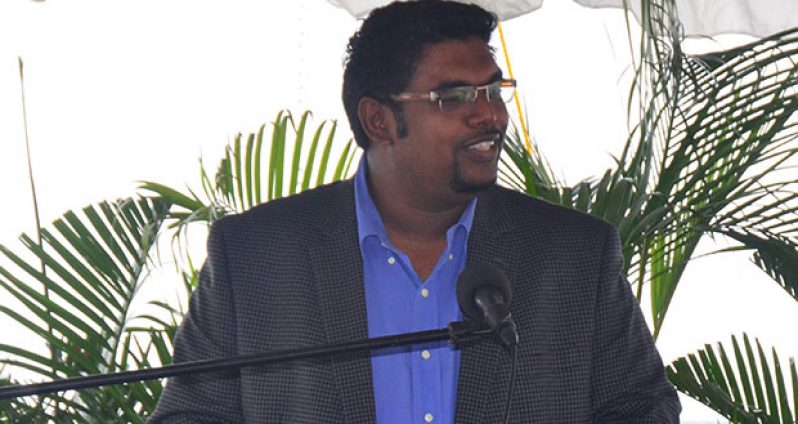By Mohamed Irfaan Ali, MP, Minister of Housing and Water
OVER the last few days, there has been a lot of noise in the public domain surrounding the present political environment of our country, with some of the commentators alluding to the lack of clarity in the existing political circumstances.
I wish to dispel these fears, and to remind all Guyanese that President Ramotar outlined a very clear and comprehensive strategy in his address to the nation. This strategy was based on: (1) Consensus building; (2) creating an enabling environment for dialogue; (3) advancing Guyana’s development priorities; and (4) giving space and time to resolve the numerous parliamentary issues.
Some key questions that I wish to address are: Firstly: Did the President act democratically and in the interest of Guyana in proroguing Parliament? This question was answered previously by many commentators, and it was clear that the President acted within the confines of the Constitution, and within the ambits of democracy.
As a matter of fact, the single reason of wanting to consult with the Opposition and find consensus on the way forward on the numerous parliamentary issues that will affect Guyana’s economy is most laudable. Can the desire to build consensus be not in the interest of Guyana? Can the desire to find consensus for the passage of important legislations, such as the Anti-Money Laundering and Countering the Financing of Terrorism Amendment Bill, the Education Bill, and the Telecommunications Amendment Bill be considered not in the interest of Guyana? Can the consideration of important supplementary papers to ignite spending within the economy, and advance the numerous social programmes be considered not in the interest of Guyana? It is clear that the President acted both democratically, and in the interest of Guyana.
Secondly: What was the alternative to prorogation? The alternative was to have the Opposition shut the country down without addressing any of the above parliamentary issues in their sole effort to bring the Government down. This would have led to immediate National and Regional Elections. This action would have immediately removed any chances of having these important Legislations approved, which cannot be considered to be in the interest of the people of Guyana. The net effect of this would have been no opportunity for dialogue. Let us recall that during that period, most commentators were calling for dialogue.
Thirdly: The question of clarity. Many commentators are asking, and legitimately so: Where do we go from here? Some Opposition operatives are trying to make out a case that the Government is seeking to maintain its position through the constitutional mechanism of prorogation, and that somehow, President Ramotar is aiming to extend the prorogation.
This proposition is geared solely to create political mischief, and is divorced from the facts and clarity outlined in the President’s address to the nation.
Let us recall that the President made it clear, on numerous occasions, that he has no interest in prolonging or extending the prorogation. His only interest in prorogation was to seek consensus, and move the nation’s business forward.
Now that it is clear that the Opposition is least concerned about consensus building and moving important legislations required to advance our country and our economy, the President would make his call. It is obvious that President Ramotar has been consistent in his approach to secure good governance, and build political consensus. However, this seems not to be priority for the Opposition.
Let us be clear on one thing: The PPP, along with the people of Guyana, has always championed the cause of democracy. It is this PPP/C Government that opened the wings of parliamentary democracy, and we did this whilst we had the majority in the National Assembly. We were never forced into expanding our democratic landscape; we did so willingly, and in the interest of Guyana. The Public Accounts Committee (PAC) was established under a PPP/C parliamentary majority government. The decision to have the Opposition chair this committee was made under a PPP/C parliamentary majority government. The appointment of an Opposition Deputy Speaker of Parliament was done by a PPP/C parliamentary majority government. The establishment of several sectoral committees with rotating chairmanship (rotating between the Government and the Opposition) was done under a PPP/C parliamentary majority government.
These are just a few examples where the PPP/C Government has demonstrated its commitment to democracy and inclusionary politics. It is, therefore, interesting to note some attempts by the Opposition to discredit this history.











